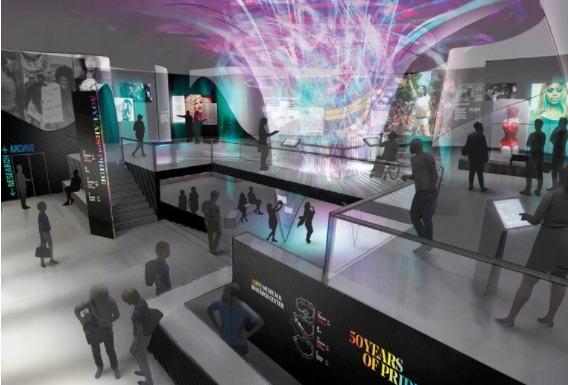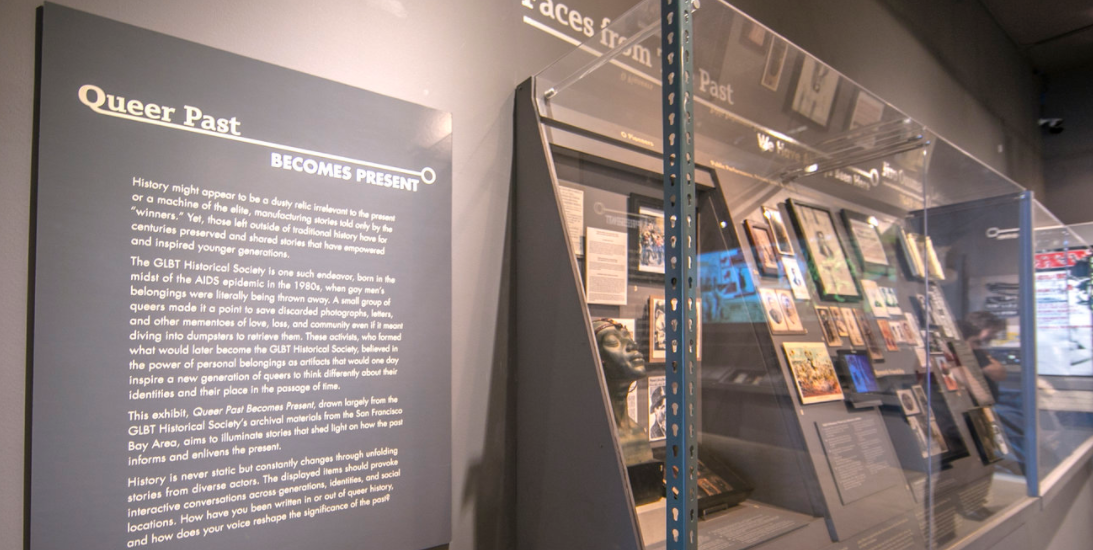The GLBT Historical Society collects, preserves, exhibits and makes accessible to the public materials and knowledge to support and promote understanding of LGBTQ history, culture and arts in all their diversity.
OUR VISION
We envision a world in which LGBTQ people are appreciated and celebrated by one another in all their diversity and by all people for their contributions to history and culture.
We envision a world in which everyone can learn about LGBTQ history as a vital means for promoting civic engagement, social justice, and political change. We envision a world in which LGBTQ people find acceptance, strength, and pride in acknowledging their heritage and in sharing it with society as a whole.
OUR VALUES
We believe that knowledge of our diverse LGBTQ past is an invaluable resource for understanding the challenges of the present and inspiring dreams for a future of greater social justice.
We appreciate the importance of LGBTQ history for building community and promoting connection.
We support debate, dialogue, and discussion about the LGBTQ past as a way to educate, inspire, and empower LGBTQ people and our allies in building our future.
On March 16 11985, more than 60 people attend a public meeting at the old San Francisco Main Library (now the Asian Art Museum) to propose establishing an association to document and promote understanding of Bay Area queer history. The meeting, organized by Eric Garber, Jim Gordon, Terry Henderling, Ellen Klages, Greg Pennington and Willie Walker, built on smaller gatherings that had started the previous fall, and included members of the San Francisco Lesbian and Gay History Project, which had begun in the late 1970s. On May 18, the membership votes to name the organization the San Francisco Bay Area Gay and Lesbian Historical Society and elects the first board of directors, including co-chairs Ilene Brettholz and Willie Walker (1949–2004).
For 35 years the GLBT Historical Society has been committed to the twin goals of preserving and sharing LGBTQ history. We have grown significantly since 1985, from a living room full of boxes to professionally managed archive. With more than 900 archival collections and over 26,000 museum visitors each year, the society is now an international leader in the field of LGBTQ history, and one of the most important queer cultural institutions in the world.
In 2003 the society moves to 657 Mission St. in the South of Market district. At the new location, the organization establishes its first dedicated galleries with an exhibition on the life and death of Harvey Milk. Photo shows the gallery space, with the suit Milk was wearing on the day of his assassination in the foreground.


On January 13 2011, the GLBT Historical Society Museum in San Francisco opens at 4127 18th St. in the Castro. The 1,600-square-foot space is the first stand-alone museum of LGBTQ history and culture in the United States. The front windows are seen here, shortly before the museum opened. Since it opened its doors, the museum has shared LGBTQ history with hundreds of thousands of visitors from across the globe.
The GLBT Historical Society Museum, located in the heart of San Francisco’s Castro District, is the first stand-alone museum of gay, lesbian, bisexual, and transgender history and culture in the United States. It celebrates the San Francisco’s vast queer past through dynamic and surprising exhibitions and programming.